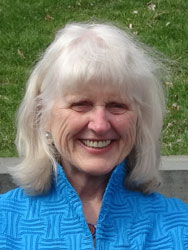Use of Human Specimens in Genetic Research Topic of Special Bioethics Falmouth Forum at MBL, August 4

MBL, WOODS HOLE, MA—The ethical implications of using human biospecimens in research will be discussed at the 2014 Fischbach Bioethics Falmouth Forum Lecture at the Marine Biological Laboratory (MBL) on Monday, August 4.Pediatrician and health policy expert, Dr. P. Pearl O’Rourke will present “Do You Know Where Your Tissue Is: Genetic Research and Personalized Medicine.” The event will be held at 7:30 PM in the MBL’s Lillie Auditorium, 7 MBL Street, Woods Hole. This annual bioethics lecture is sponsored by Drs. Ruth and Gerald Fischbach, and is free and open to the public.

Genetic research and personalized medicine requires access to large numbers of human biospecimens (such as tissue, blood, and plasma) that are ideally linked to one’s health information. These specimens may be collected specifically for research purposes or may be leftover material that was initially collected for clinical care.
There are regulations that govern researchers’ access to specimens and that specifically address when an individual’s informed consent is and is not required. There is also rapidly evolving public demand for notification and transparency regarding the use of personal information as well as specimens. Many of these ethical issues were brought to the forefront in the 2010 New York Times bestseller The Immortal Life of Henrietta Lacks. Dr. O’Rourke’s talk will present these topics and explore the challenges and possible solutions going forward.
P. Pearl O'Rourke, M.D.is the Director of Human Research Affairs at Partners HealthCare Systems in Boston and an Associate Professor of Pediatrics at Harvard Medical School. She is responsible for the systems that support the regulatory and ethical oversight of human research and human embryonic stem cell research. Her career began as a pediatric critical care physician at Children's Hospital, Boston and then Children's Hospital, University of Washington, Seattle as Director of the Pediatric Intensive Care Unit.
Following a Robert Wood Johnson Health Policy fellowship working for Senator Edward Kennedy from 1997 to 2000, she was the Deputy Director of the Office of Science Policy in the Office of the Director at the NIH where she worked on issues such as privacy, gene therapy (transfer) embryonic stem cells, and genetic discrimination.
For more information on the lecture and the MBL Falmouth Forum Series, contact the MBL Communications Office at (508) 289-7423 or comm@mbl.edu or visit mbl.edu/falmouth-forum.
—###—
The Marine Biological Laboratory (MBL) is dedicated to scientific discovery and improving the human condition through research and education in biology, biomedicine, and environmental science. Founded in Woods Hole, Massachusetts, in 1888, the MBL is a private, nonprofit institution and an affiliate of the University of Chicago.
The MBL Associates are a group of individuals and businesses that support the scientific mission of the MBL through their gifts to the Annual Fund. The Associates sponsor educational and research programs for the MBL and raise funds for special projects. In addition, they operate the MBL Gift Shop, located on Water Street in Woods Hole, the profits from which support scientific fellowships.